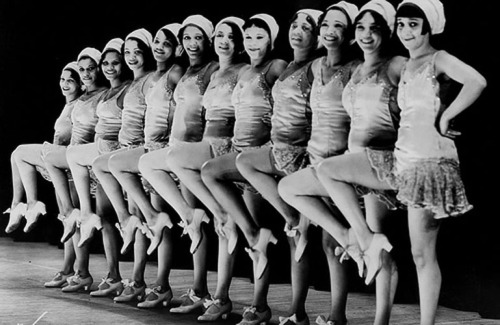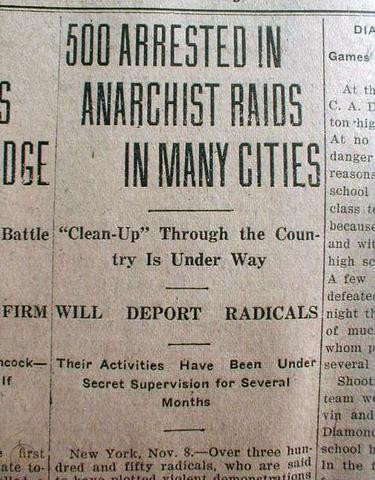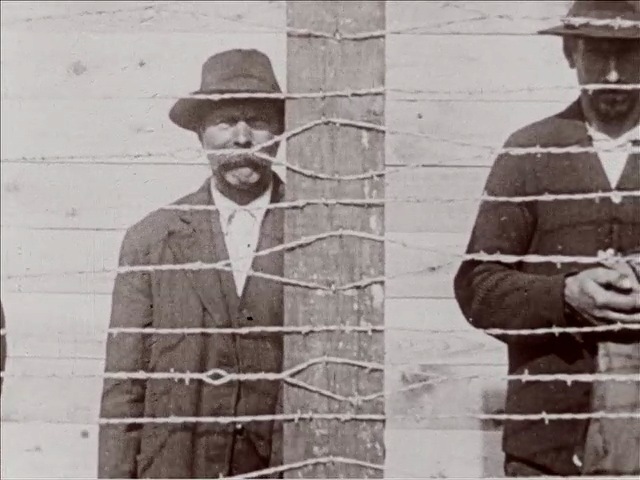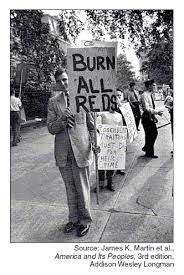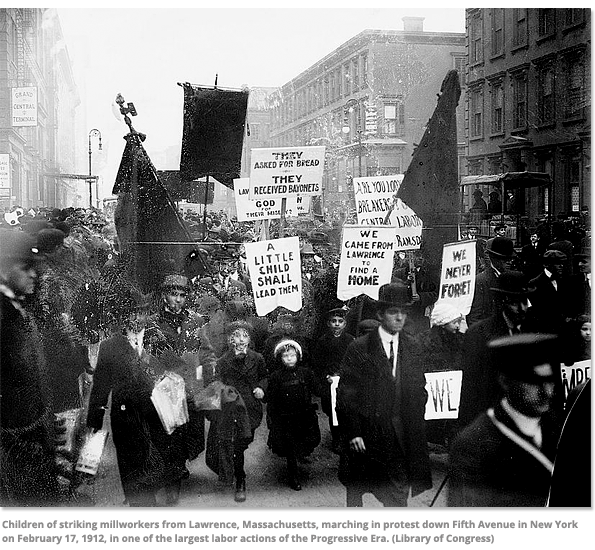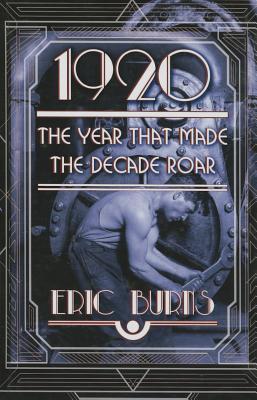
In his introduction to 1920: The Year That Made the Decade Roar, Eric Burns wrote, “But although the year that is the subject of this book was a preview of a decade, it turned out to be more than that: it would be a preview of the entire century and even the beginning of the century to follow. . .” This blog entry focuses on this amazing year!
The Nineteenth Amendment [finally] passed, granting 26 million American women the right to vote in time for 1920 US presidential election. It was a near thing. The Tennessee House of Representatives voted in favor of the amendment 50/49.
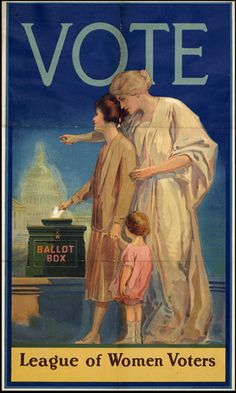
- Approximately 1,000 years since the formalization of the Haudenosaunee Confederacy guaranteed women equal political voice in the Onondaga, Mohawk, Seneca, Oneida, Tuscarora, and Cayuga nations around the Great Lakes region
- 365 years after the first American woman insisted on voting in the New World and being told she was not entitled
- 282 years after Margaret Brent, a successful Virginia businesswoman, demanded the right to vote in the state’s House of Burgesses in 1638 and was denied
- 144 years after Abigail Adams urged her husband to “remember the ladies” in the new constitution
- 51 years after the Territory of Wyoming officially gave women the right to vote

All of these ladies were born before the 19 Amendment passed and are shown here voting for a female president for the first time.
Other than 1791 (when the Bill of Rights was ratified), 1920 was the only year in which the Constitution was amended more than once. The Eighteenth Amendment (ratified in 1919 and put into action in 1920) prohibited alcohol in the United States. Dare I say the Nineteenth was the more successful amendment? The Eighteenth was subsequently revoked by the the Twenty-First Amendment.
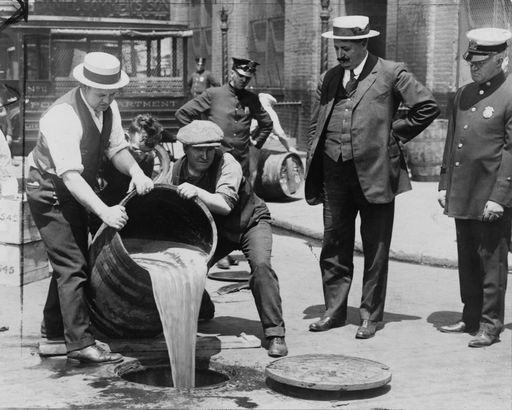
The alligators in the New York City sewers were very happy that day!
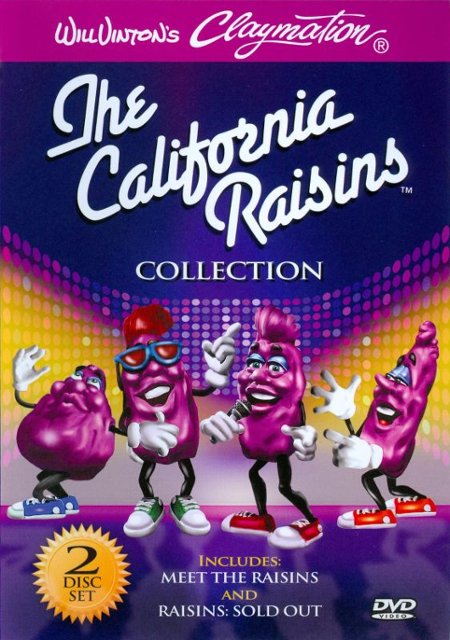
- Prohibition forced California vineyard owners to diversify production, to market table grapes, and to improve raisin production methods.
- The raisins would be marketed under the Sunmaid label.
- These raisins were very talented, recording several jazz albums, starring in a TV show, and creating their own video game. I think they also fought crime.
- Sales of coffee, soft drinks, and cream sodas boomed.
- Many hotels converted their bars to soda fountains and lunch counters.
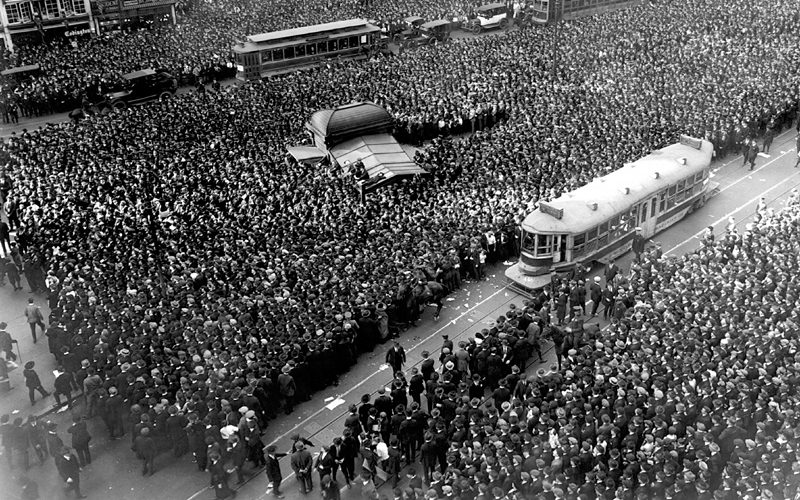
The U.S. population reached 105.7 million. A third of all people lived on a farm, but for the first time we had more urban dwellers that rural dwellers (54 million to 51.5 million).

1920 saw the beginnings of many major brand names: La Choy Food Products, Seabrook Farms, the Good Humor ice cream bar, Mint Products, Inc. was renamed Life Savers, Inc., Baby Ruth was trademarked, Oh Henry! Candy bar created.
The “Lost Generation” became a force in American literature. Among books published in 1920: Main Street, This Side of Paradise, Flappers and Philosophers. Also, F. Scott Fitzgerald introduced Scribner editor Maxwell Perkins to the short stories of Ernest Hemingway.
The biggest oil deposits in the world outside of Texas were discovered in Alaska.
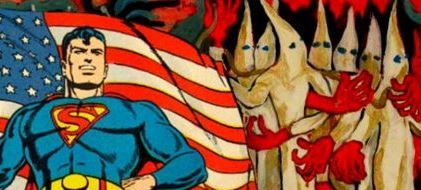
The Ku Klux Klan was revitalized in 1920. They terrorized the nation, in well-known ways. Decades later, President Johnson tasked J. Edgar Hoover with subduing the KKK. The FBI (as the former BOI was then known) won an enormous law enforcement victory—but it wasn’t eradicated.
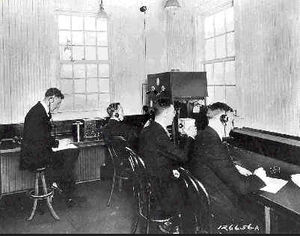
Mass media were born with the first commercially licensed radio station broadcasting live results of the presidential election.
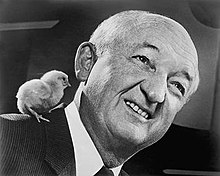
Perdue Farms was founded in Salisbury, MD. Former railroad worker Arthur Perdue, 34, paid $50 to buy 50 Legthorn chickens, built a backyard chicken coop, and produced table eggs. Most U.S. poultry specialized in eggs because chickens were a riskier proposition.
Perdue family note: Frank Perdue was born May 9. He grew up to attend college for two years and play semipro baseball briefly, but he ultimately went to work with his father.
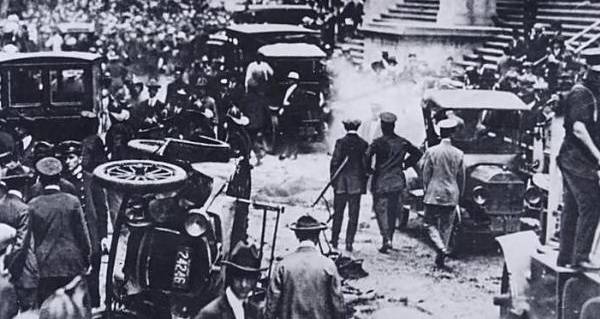
The first terrorist attack ever in the U.S. The bomb was a horse-drawn wagon packed with 100 pounds of dynamite and 500 pounds of cast-iron sash-weights that acted like shrapnel. It was detonated by a timer at noon on the busiest corner on Wall Street. Thirty-eight people were killed outright, 57 people were hospitalized, some of whom later died. All told, more than 400 people were injured. Suspects included Russians, Italian anarchists, and the KKK.
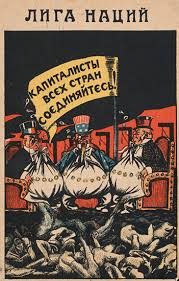
The USSR was also not terribly keen to join the League of Nations.
John Reed, pro-Bolshevik author of Ten Days That Shook the World, died. He was and still is the only non-Russian buried inside the Kremlin walls.
The League of Nations was established. President Woodrow Wilson was a chief architect. Although his Fourteen Points became the framework for the League of Nations, the United States never joined. In 1920, Wilson was completely disabled, having suffered a blood clot while promoting U.S. joining.
The blood clot left Woodrow Wilson paralyzed, partially blind, and brain damaged. In 1920, First Lady Edith Bolling Wilson was the de-facto POTUS. She took over, controlled access to the president, and made policy decisions on his behalf. She held a pen in his hand to write his name. The French ambassador to the U.S. referred to her as Mme. President.
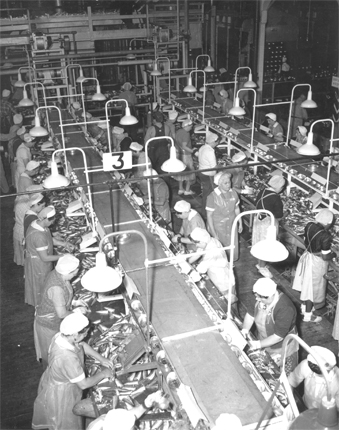
Overfishing of the Sacramento River forced the closing of San Francisco’s last salmon cannery. Cannery Row is now a tourist attraction. Steinbeck’s Cannery Row is a big seller in the shops there.
Charles Ponzi was arrested in 1920 and charged with 86 counts of mail fraud.
The world sugar price dropped from thirty cents a pound in August to eight cents in December. Milton Hershey lost $2.5 million in the collapse, as did other large sugar consumers. Pepsi-Cola headed toward bankruptcy when Caleb Bradburn lost $150,000. Chero-Colo (later known as RC Cola) ended the year with over $1 million in debts that hung over the company for years.
In 1920 the second and “most spectacular” of the notorious Palmer raids was carried out. All across the country, in one fell swoop, thousands of accused communists and anarchists were arrested. The raid was organized by J. Edgar Hoover, then head of the Bureau of Investigation’s General Intelligence Division. This began his political ascent.
California legislators enacted a new Alien Land Act to prevent Asians from renewing their leases on farmland.
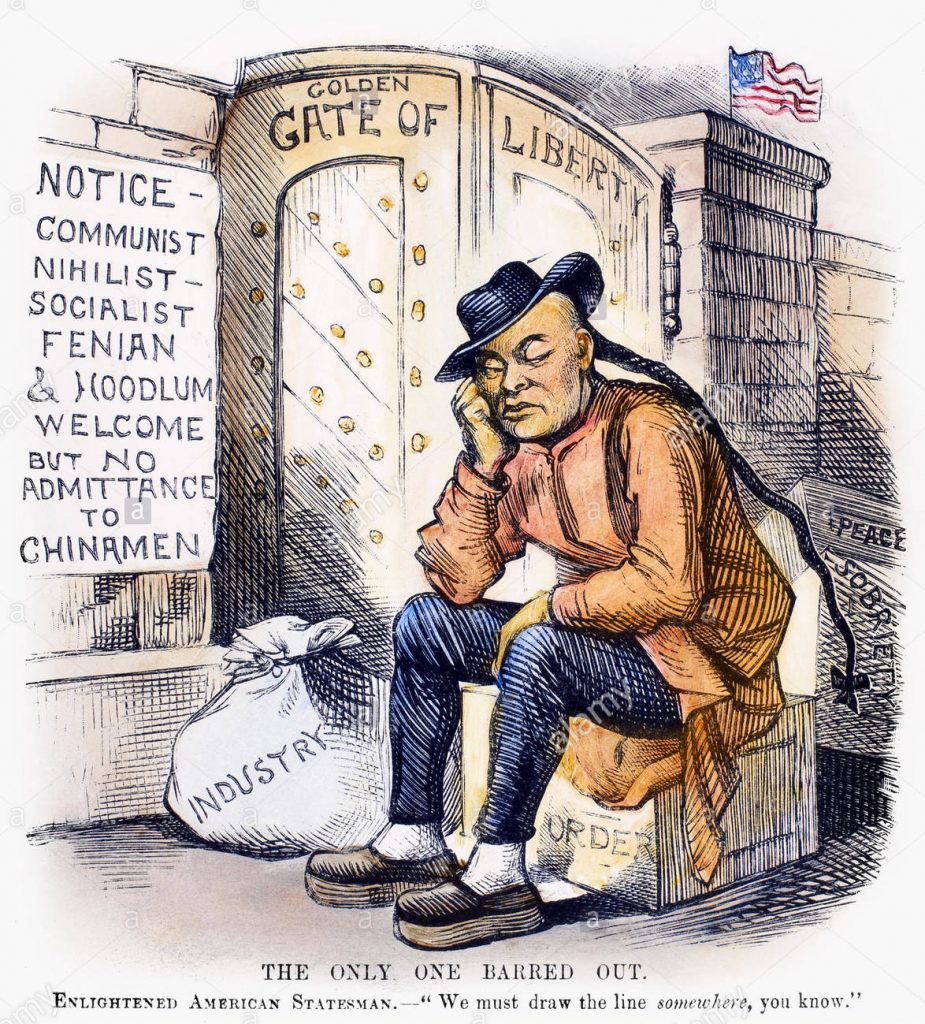
Among the many parallels Burns highlights, he wrote, “…just as there were pleas to close the borders, so were there arguments to keep them open. The issue was an incendiary one…”
For more parallels between 1920 and 2020, check out this post from Cheapism. Automation of labor, marijuana legalization battles, forward strides in feminism, increasing income gaps… Many of the issues we see in today’s headlines are eerily similar to headlines from 1920.
BOTTOM LINE FOR WRITERS: consider a plot that has historical roots; consider a character whose family traditions, money, or values have deep historical roots. And stay curious!
